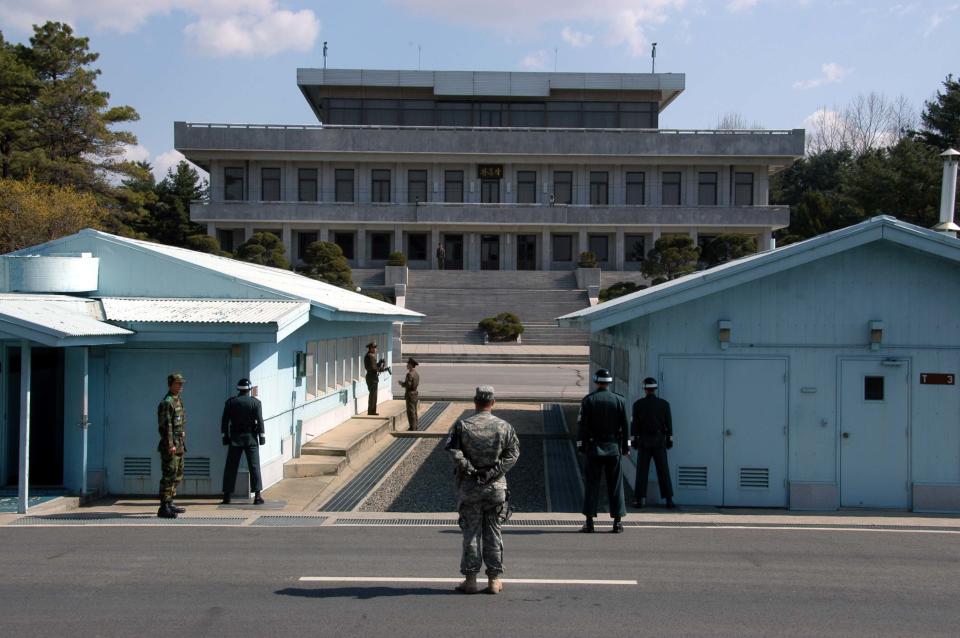The cost of unifying North and South Korea

North Korea has become the epicenter of geopolitical tensions. Escalation into a military conflict could mean extreme problems in the near-term, as the North has nuclear weapons and an unpredictable dictator. But one analyst thinks the fall of North Korean supreme leader Kim Jong-Un could be a net positive for what may become a unified Korean economy.
In the best case scenario, something like the reunification of Germany in 1990, South Korea would likely benefit economically in the long run, according to a report from Capital Economics. Like Japan, Germany, and some European countries, the population of South Korea is aging rapidly, with the median age 41.2. On the other hand the 25 million people in North Korea have a median age of 33, which would breath youth back into the workforce and improve the country’s demographic outlook.
Another benefit to South Korea would be getting access to the North’s natural resources, which make up most of the peninsula’s raw materials. With more to work with, import costs would go down.
And with the effective end of the demilitarization zone on the 38th parallel, defense expenditures would fall, the analysts reckon.
All this is overshadowed, unsurprisingly, by the uncertainty of conflict, which though short, would likely be extremely brutal. Significant losses of life and damage to infrastructure in both Koreas would compound problems and costs, and Seoul, the South’s most populous city is a mere 35 miles from the border. And given that South Korea is a booming center for manufacturing, conflict would almost certainly damage supply chains, something that recent drops in the Korean financial market have reflected.
Given the uncertainty, the Capital Economics analysis affixes a big asterisk next to the cost of reconstruction, but estimates something around $1 trillion, which is three times what the German reunification cost and is the same as one year of the South’s GDP. It is not cheap to rebuild a destroyed economy.
Ethan Wolff-Mann is a writer at Yahoo Finance focusing on consumer issues, tech, and personal finance. Follow him on Twitter @ewolffmann. Got a tip? Send it to [email protected].
Read more:
Subprime auto loans too small to be a big problem, says Dimon
An interesting market sign says private jet sales may be about to take off
Democrats found a way to speak Trump’s language
What Trump’s intriguing Nafta changes say about his other promises
Facebook’s copy of Snap stories is a reminder of a Silicon Valley hard truth
The trick to getting credit card fees waived? Just ask
These two companies lobby to make your taxes way harder
Chase’s Sapphire Reserve is very worth it, even with its slashed bonus